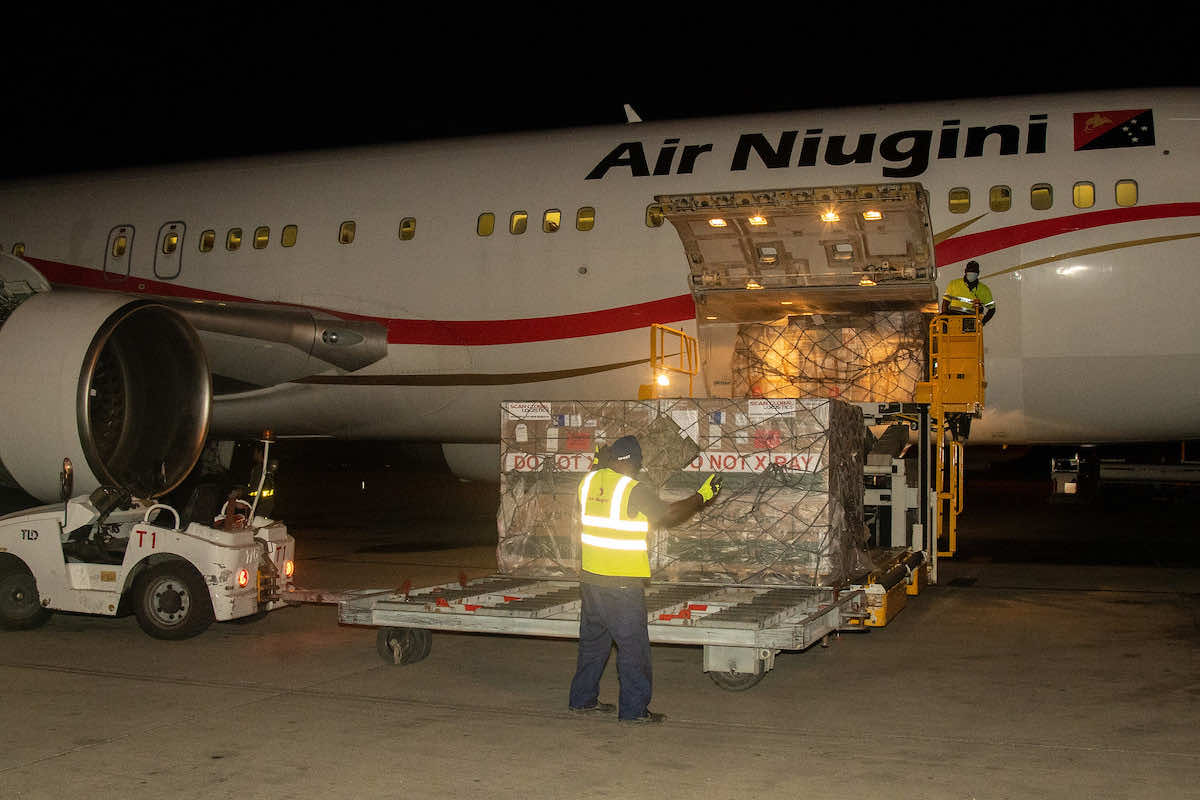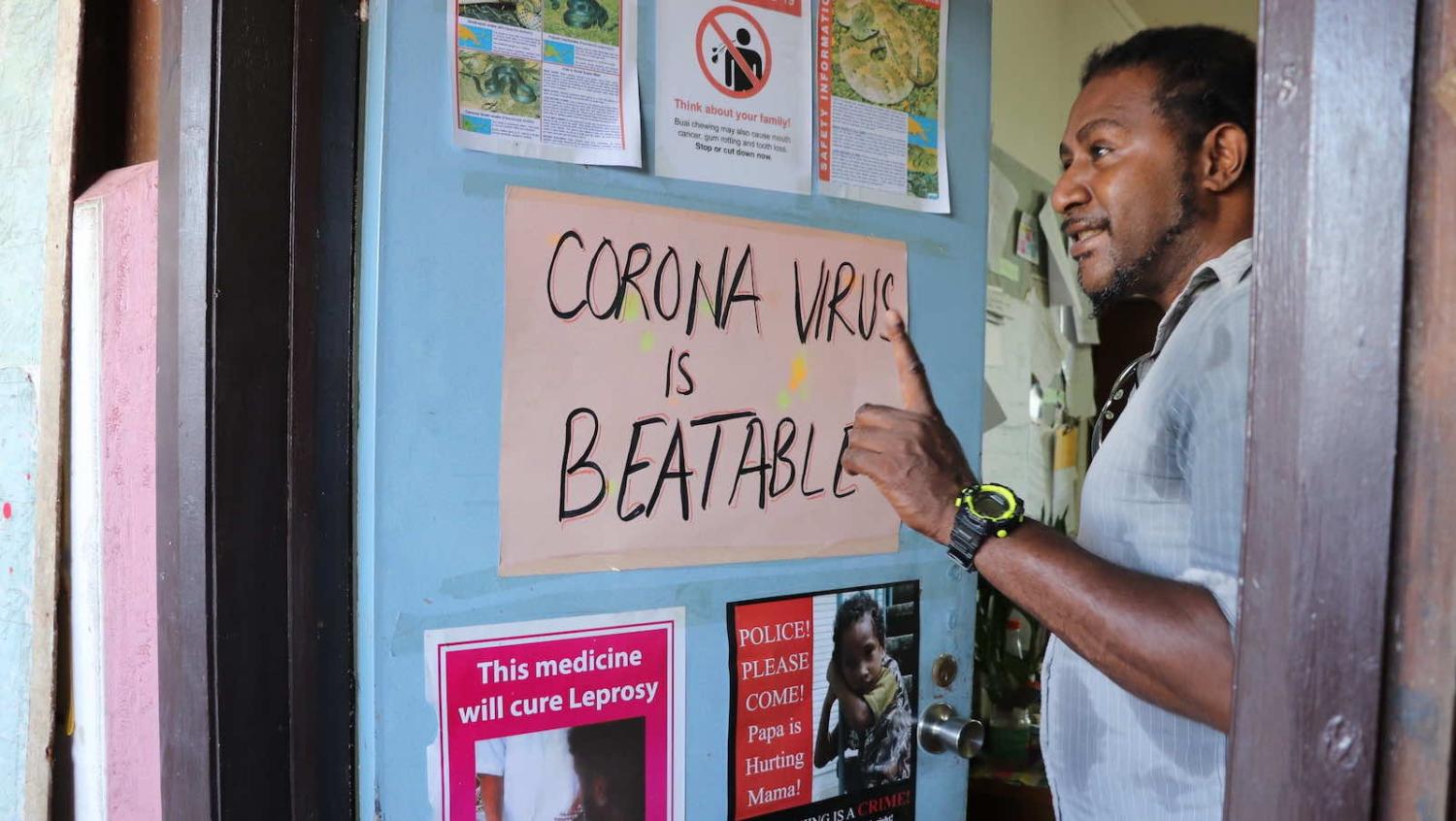As the Covid-19 pandemic unfolds, more than 130,000 vaccines donated by the global facility COVAX doses have expired in Papua New Guinea. PNG is Australia’s largest aid recipient and is currently using AstraZeneca vaccines donated by Australia, New Zealand and COVAX for its first phase of a vaccine rollout. With a population of roughly 8 million, statistics reveal fewer than 100,000 people have received the Covid-19 vaccine to date.
PNG’s closest neighbours, Indonesia and Australia, are both hotspots for the highly contagious Delta variant. The past month has also seen reported cases of Delta strain in PNG. Not having enough supply of vaccines isn’t the issue: it’s ensuring people of PNG are empowered to go get vaccinated.
The introduction of various brands of vaccines such as Sinovac and the single dose Johnson & Johnson version may further add to the confusion that already exists.
There is limited capacity to expand Covid-19 testing and treatment in the country. Investing in prevention is the key. The hospitals and aid posts in remote and rural areas that support nearly 80% of the country’s population do not have the resources to treat those with a severe Covid-19 infection. There are limited or no oxygen cylinders and concentrators. Intensive care beds and ventilators are non-existent in many rural settings – let alone basic anti-malarial treatment, resuscitation fluids, analgesia and antibiotics for the other life threatening conditions that people face on a daily basis.
For some healthcare workers and communities, vaccination against Covid-19 may not be their biggest priority. For them, there are far bigger everyday challenges to overcome.
In many provinces, there is not much interest in “Niupela pasin” (the new normal) or Covid-19 vaccinations. Life continues on as normal. However, Covid-19 has put an extra burden on PNG’s already weak health system. Many rural hospital and aid posts lack basic essential lifesaving medical supplies due to supply chain and transport logistical issues. These challenges have been exacerbated by Covid-19. Shifts in political and economic focus to prioritise the Covid-19 response mean many rural facilities are now not receiving the basic resources they require to provide adequate healthcare for their patients.

Currently the government, Provincial District Health Services, and non-government organisations are correcting misinformation spread on social media and other forms of communication. These organisations are providing awareness about Covid-19 and also offering vaccines to those who want it. This includes providing awareness to healthcare workers, community leaders and church leaders to allow them to share this knowledge and empower their community members to get vaccinated.
Vaccine hesitancy within villages has been further compounded by current anti-vaccination groups from all over the world, including in PNG and across the Pacific, who have used the internet and social networks to spread falsehoods and myths to vulnerable populations. Accurate health information needs to be provided to the villages from trusted governments, local leaders and health care workers.
Community participation is vital. Delta cases are already spreading in the country yet some locals believe this variant will not reach their villages. For some villagers, prevention of disease may be a challenging concept to understand, given the low health literacy rates. By the time people seek health care, they often present with severe disease complications due to a combination of a lack of knowledge, a lack of health facilities and the long distances they need to travel to get help.
Finally, as more donations keep coming, the introduction of various brands of vaccines such as Sinovac and Sinopharm and the single dose Johnson & Johnson version may further add to the confusion that already exists. This could further fuel vaccine hesitancy. As new batches of donated vaccines arrive in the country, the National Department of Health needs to strengthen its vaccination outreach programs and focus on educating and empowering local health care workers and communities to get vaccinated and stop the spread of misinformation.

